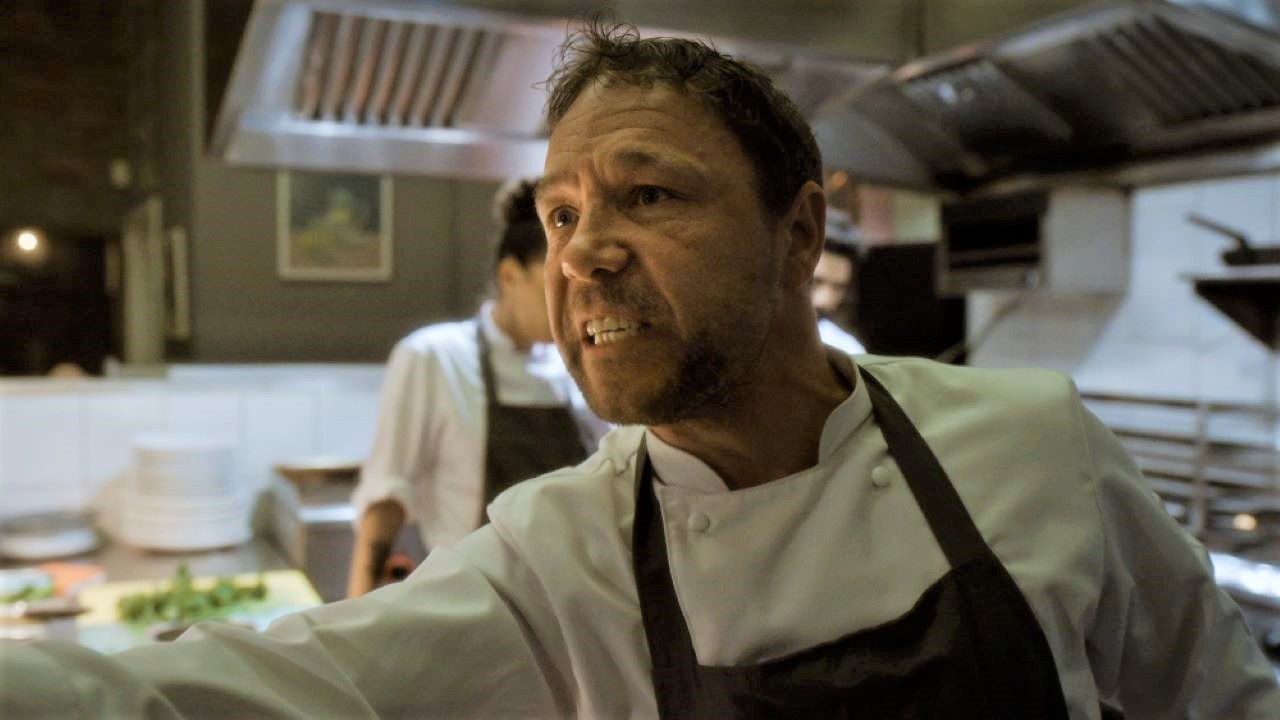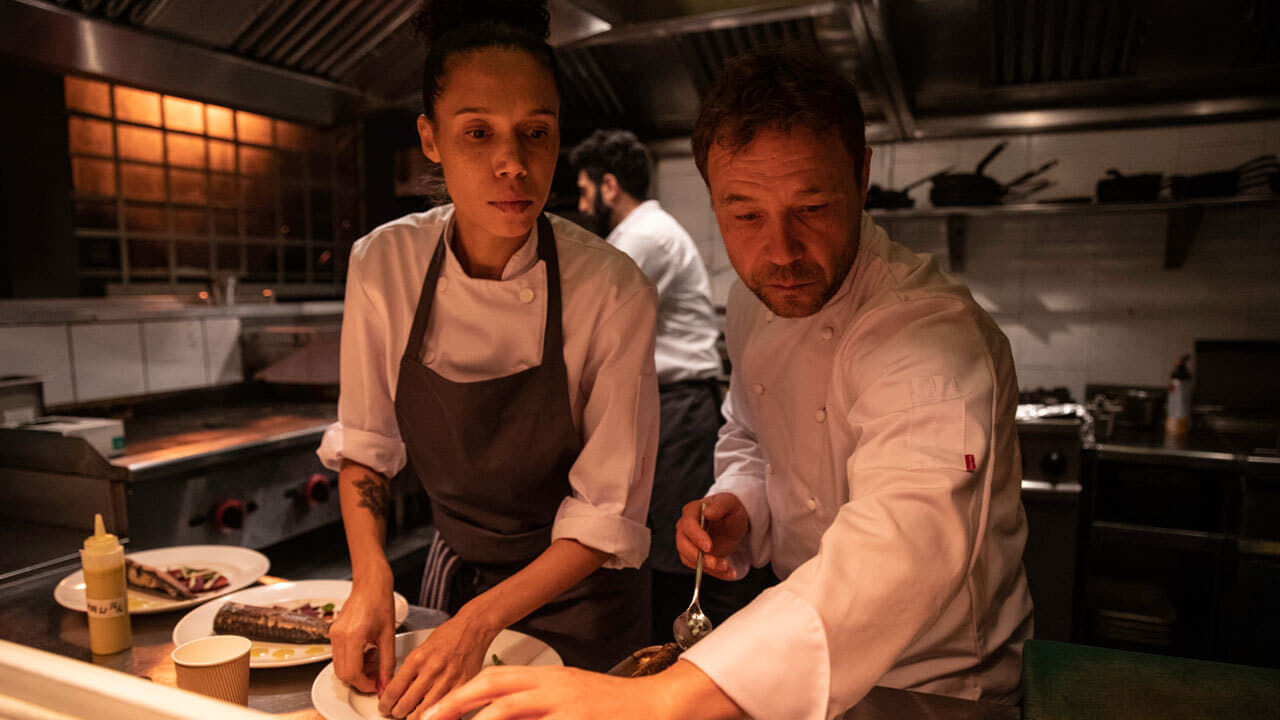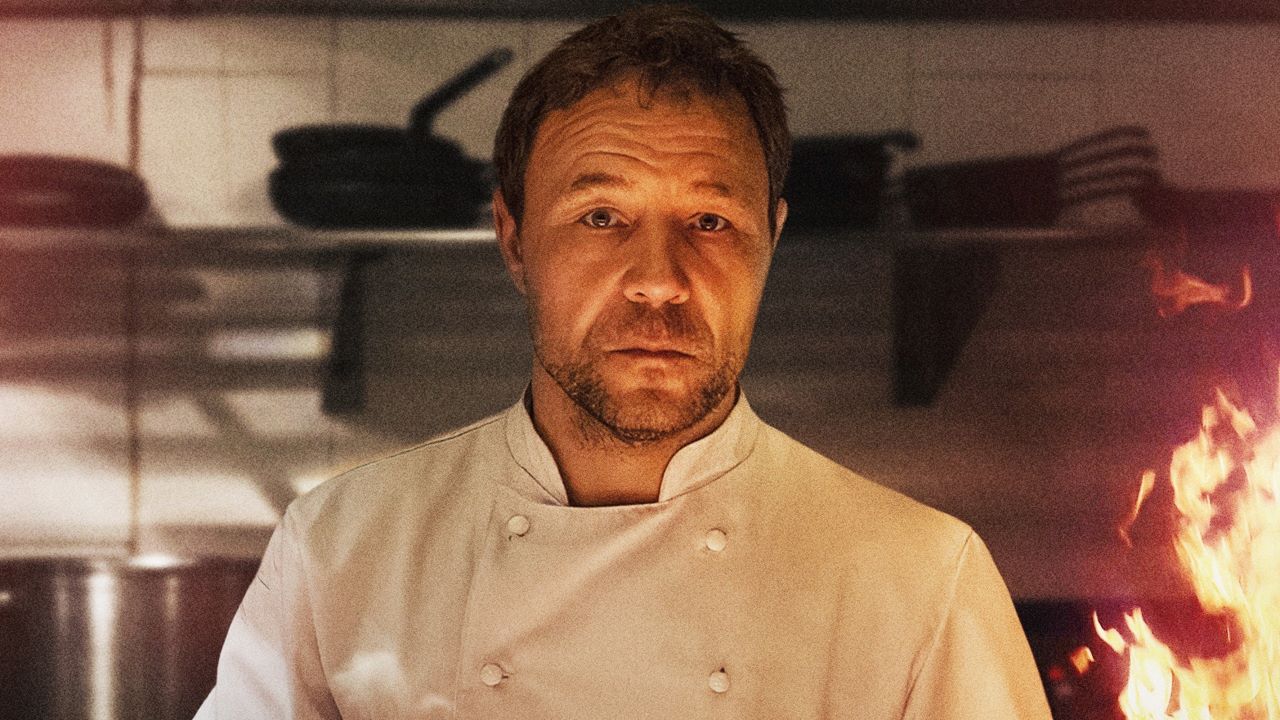One-take wonder Boiling Point turns its authentic restaurant setting into a pressure cooker

The heat is on for a trendy London restaurant in Boiling Point, a terrifically tense film that might just embody what the whole country’s going through.
From Rope to 1917 , most one-shot films fall into two traps. Firstly, the technique is often more about showing off than responding to the material. Secondly, they cheat.
Filmed in an unbroken, 90-ish-minute take—with all the adrenaline and improvisation that implies—pressure-cooked restaurant drama Boiling Point is the real deal. Indeed, as a feat of movie-making, it’s only a few steps behind 2015’s Victoria, the masterpiece of the genre.
Directed by actor-turned-director Philip Barantini (Villain), Boiling Point is based on his 2019 short, and co-written once again with James Cummings. It draws on Barantini’s experience working in professional kitchens in the downtime between jobs, and it shows. Not only that, the technique seems to have grown organically from the material, placing us at the centre of a hectic service.
It’s Christmas Eve at Jones & Sons, where head chef Andy (Stephen Graham) runs the pass. When he arrives at work, still shaking off last night’s excesses, there’s a health inspector (Thomas Coombes) badgering the staff, food orders missing, and celebrity chef Alastair Skye (Jason Flemyng) booked in. What follows is a nervous breakdown in three acts—except with Matthew Lewis’s unblinking, ever-roving camera, it’s really just one.
After a few seconds in Andy’s company, you have the measure of the man. “Show some fucking respect, respect your fucking self!” he shouts at new girl Camille (Izuka Hoyle) over a minor infraction. But as the hasty phone apologies to his wife and child—and hints of addiction—show, he’s lost all self-respect of his own, and the wheels are about to come off.

Because you never know whether he’s going to hug someone or hit them Graham is, as ever, an unpredictable presence. After bawling at the staff over slipping standards, Andy suddenly turns kind and nurturing, but the effect is destabilising rather than reassuring.
As Andy’s second-in-command Carly, Vinette Robinson almost steals the show. “I do not get paid enough to deal with this shit!” she tells front-of-house whip-cracker Beth (Alice Feetham). Tony (Malachi Kirby) and Freeman (Ray Panthaki) round out the kitchen staff, and Gary Lamont is all charisma as a waiter/wannabe DJ Dean. To the film’s credit, each character gets a moment of their own amid the whirlwind, so we see Beth disappear into the toilets for a well-deserved cry, and apprentice pastry chef Jamie (Stephen McMillan) trying to hide his self-harm scars. “We’re not gonna do this now,” says his boss Emily (Hannah Walters), wrapping him in a hug. In other words, the show must go on, personal crises be damned.
As in Birdman, the camera whisks us from front of house to backstage without distinguishing between the restaurant’s public and private faces. We watch waiters scurrying off to serve terrible customers then follow them back to the bar for some scurrilous gossip, before the camera wanders off again, seeking out another story. Plating up what looks like Michelin-quality food in real time, Graham and co. have clearly had some training, making Boiling Point the most authentic-seeming British restaurant film since 2010’s Perfect Sense.

Indeed, the only things that feel contrived are the events that unfold among the customers. Alastair, Andy’s old boss, arrives with mischief in mind and food critic Sara Southworth (Lourdes Faberes) in tow. Some unlikely Instagrammers kick off because steak and chips isn’t on the menu—and Beth gives in to them far too quickly. And there’s a subplot involving a customer with an allergy that may as well be signposted as ‘Chekov’s Nut’.
The ending, meanwhile, feels overly abrupt. It’s as if, with all the parts set in motion, Barantini doesn’t quite know how to stop them. Perhaps it might have been better to show the team fighting the not-so-good fight for another night rather than trying to conjure up an overly dramatic conclusion. Then again, perhaps we should take Sara’s advice: “Reviewing is like sex. You go by what’s there, not what’s not there.”
Ultimately, however you feel about the ending, this is one hell of an achievement for Barantini. Tense, timely and impeccably put-together, it feels like a microcosm not just of the restaurant industry right now, but the country as a whole, pushed to the limits by Brexit and COVID. Let’s hope it ends better for us than it does for Andy and co.




















